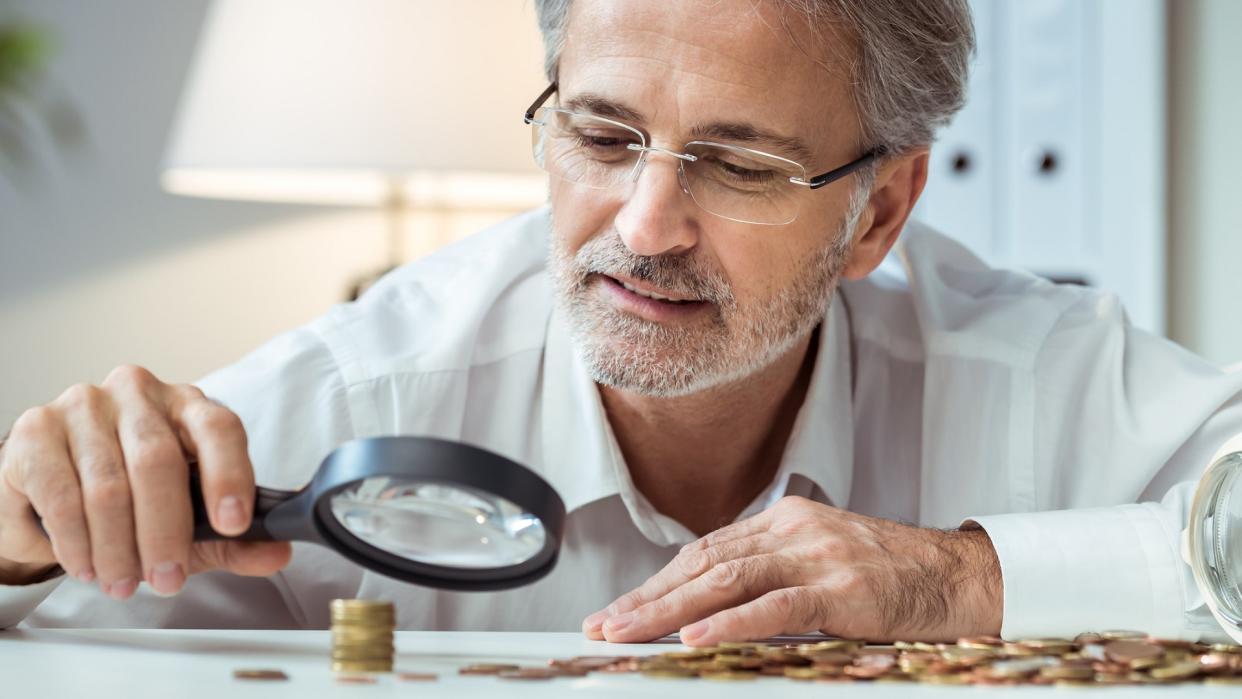Not Sure What To Do With Your Old Coins or Bills? Let These 3 Experts Help You

Not all old coins or dollar bills are unique, but some could be worth thousands of dollars. And if you do have old currency lying around, it doesn’t hurt to check and see what it’s worth.
Check Out: 10 of the Most Valuable Pennies
Read Next: 6 Genius Things All Wealthy People Do With Their Money
“You’d be surprised that many bills and coins being passed around at the convenience store are actually worth more than face value,” wrote Seth Gold, vice president at American Jewelry and Loan in Detroit, in an email.
How Rare Are Valuable Coins or Bills?
It’s rare to find a valuable old coin or paper bill, and they don’t last long in circulation. According to Ted Ancher, director of numismatics at American Precious Metals Exchange, Inc. (APMEX), coins typically last a few decades in circulation, while bills only last a few years. Also, most valuable coins were struck prior to the mid-20th century and are rare due to low mintage and survival rates.
“Between collectors pulling and/or hoarding what they find, and the Federal Reserve pulling older coins and bills from circulation, there is very little to find in circulation today,” he noted.
Learn More: 8 Rare Coins Worth Millions That Are Highly Coveted by Coin Collectors
Inspect the Currency
“The value of coins and bills is centered around a few areas which primarily focus around mintage, grade and population,” said Ancher. “The higher the grade, the more valuable the coin is. If paired with a low mintage, that usually makes the coin extremely valuable.”
Population, which is determined by how many coins are known to exist in that grade, can also make a big difference. “A common coin in a much higher grade, where only 3 or 4 are known in that grade, can also bring big bucks. However, these coins would need to be professionally graded by a third-party grading service,” Ancher explained.
Variety can also affect the currency’s value, but Ancher said such examples are often difficult to spot and may require magnification. “The value of these depends on finding the right buyer who is willing it pay for that variety,” he said.
Coins are graded on a scale from 1-70, with 1 being the lowest grade and 70 being the highest grade, Ancher said. Most coins in circulation fall in the 1-58 range — but he said knowing the grade, or state of preservation, helps determine the value of the coin.
Unique features or errors can also significantly increase the worth of a coin or bill.
“A true serial number 1 banknote or notes with solid serial numbers can be worth thousands, while some errors can also launch an item into that value range,” Dustin Johnson, vice president of numismatics at Heritage Auctions, told Nexstar, per The Hill.
Gold said you should also look at the date, as the coin’s contents may be worth more than the coin itself. “Here is a simple rule of thumb: If you encounter dimes, quarters and half dollars which were minted (i.e. dated) on or before 1964, those coins are worth more than face value because they contain silver content,” he wrote.
What Should You Do if You Find Something Valuable?
If you do find old currency or something that could potentially be valuable, one word of advice: Don’t clean it. “Cleaned coins lose a significant value in the marketplace. Collectors prefer originality, and will actually pay a premium for it,” Ancher said.
Instead, Ancher recommended purchasing a non-plasticized inert coin flip or coin capsule to protect the coin. You can also try to determine the grade on your own using online resources. For example, Ancher said APMEX offers coin values in the knowledge center on the company’s website. It allows users to identify what they have and get a value based on the state of preservation.
Another option is to get the coin appraised by an authorized dealer. According to Consumer Reports, the dealer or appraiser should have a membership in the American Numismatic Association, at minimum. You can also get an appraisal from a dealer authorized by the PCGS.
“Remember to obtain multiple quotes across available sales channels to ensure you are getting the best offer,” Gold advised.
More From GOBankingRates
Why Florida's Retirees Are Fleeing -- And Where They're Going Instead
Here's How to Add $200 to Your Wallet -- Just For Banking Like You Normally Would
This article originally appeared on GOBankingRates.com: Not Sure What To Do With Your Old Coins or Bills? Let These 3 Experts Help You
